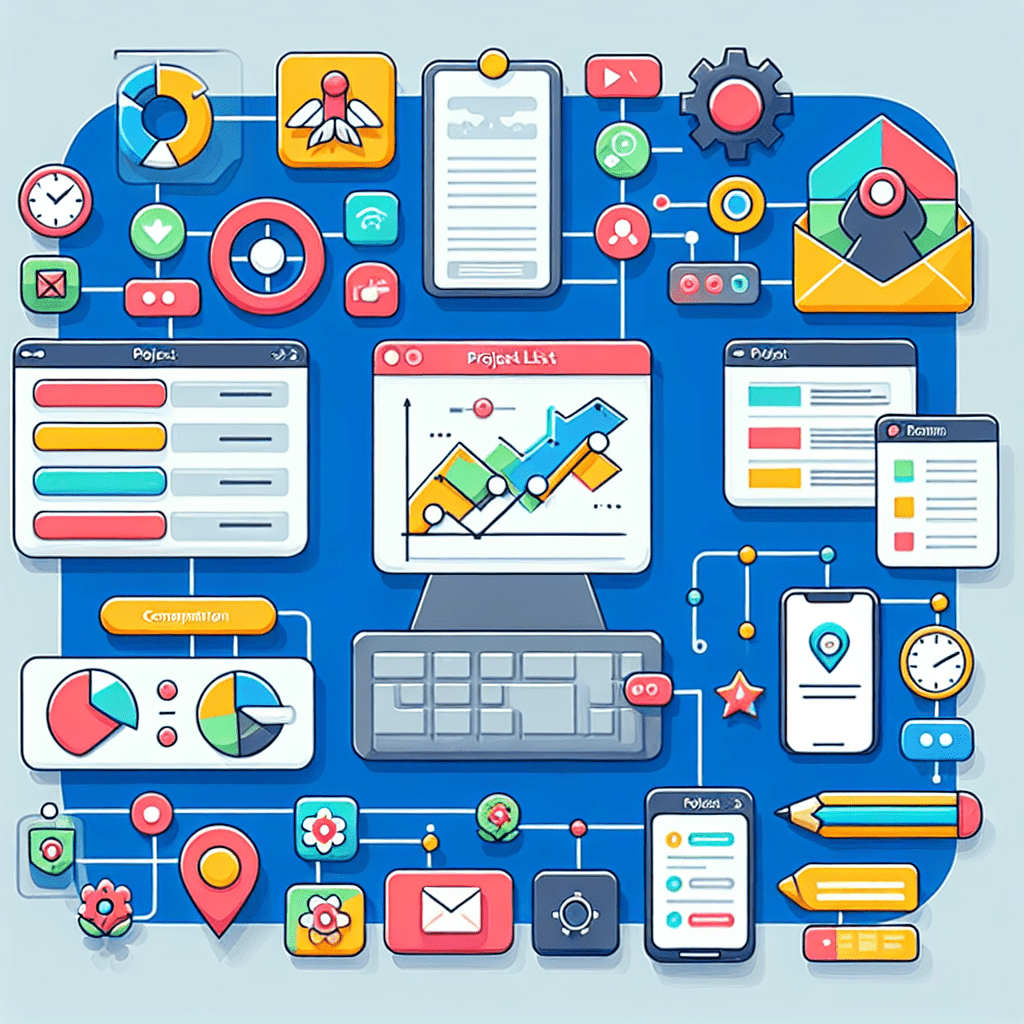How to Enhance Your E-commerce Website with Laravel
In the competitive world of E-commerce, choosing the right tools for your platform could be the difference between basic functionality and exceptional user experience. One tool that stands out is Laravel, a PHP framework renowned for its elegant syntax and robust features. In the context of E-commerce website development, Laravel is appreciated for its capability to handle complex web applications securely, speedily, and efficiently, which makes it an excellent option.
The importance of enhancing your E-commerce website cannot be overstated. With online shopping rapidly rising, providing an intuitive, user-friendly, and appealing online shop is paramount. Your website’s performance directly impacts customer satisfaction, conversion rates, and ultimately, your bottom line. Connecting these perspectives – the importance of Laravel in E-commerce website enhancement – opens a broad discussion that we will delve into in this article.
An in-depth approach into Laravel will illustrate how this preferred PHP framework can be utilized to facilitate, secure, and upscale your E-commerce venture. We’ll converse over the benefits of Laravel, its functionalities, and how you can incorporate it into your E-commerce platform.

Advantages of Using Laravel for E-commerce Development
MVC Architecture Support
A leading reason why Laravel stands out as an excellent PHP framework for E-commerce development is its support for MVC (Model-View-Controller) architecture. This architecture pattern is beneficial in maintaining a clear separation of concerns, making the code more intuitive and manageable, which directly translates into more comfortable Laravel project management.
Thanks to MVC, Laravel enables efficient organization of large codebases, which is common in complex E-commerce website development. This organized structure results in improved performance – a critical factor for E-commerce websites where a minor delay can lead to significant customer drop-off. With Laravel’s MVC support, your E-commerce website is ensured not only to operate quickly, but also to function smoothly.
Security Features
In E-commerce, handling sensitive customer data is a given. This necessity emphasizes the crucial aspect of website security. Here, Laravel’s security features enhance the Laravel PHP framework’s value in online store development. Laravel secures web applications by protecting against common threats like SQL injection, cross-site request forgery, and cross-site scripting.
In addition to counteracting these threats, Laravel also provides a streamlined API for handling user authentication and authorization. Its Laravel data encryption functionality assures the secure transmission of sensitive data. With Laravel, you can ensure that customers’ information is rigorously protected, boosting their confidence to shop on your platform.
Efficient Traffic Handling
E-commerce websites often encounter massive traffic, particularly during peak sales seasons. Laravel’s PHP framework stands out by efficiently managing high traffic loads. Laravel’s unique queue system offloads time-consuming tasks, such as sending emails or creating backups, until a later time, ensuring users experience faster page loads. This aspect allows your online store to provide an uninterrupted user experience even in high traffic conditions.
Furthermore, Laravel’s simple API over the SwiftMailer library, drivers for SMTP, Mailgun, and Mandrill, enable sending emails through localized or cloud-based services rapidly. Also, it supports sending notifications across various delivery channels, including SMS and Slack, enhancing the overall effectiveness of your E-commerce communication system.

Functionalities You Can Add Using Laravel
Easy Administration System
Running an E-commerce website involves managing numerous products, customers, and orders. Laravel eases this task by supporting the integration of robust administrative interfaces. With a Laravel administration system, you can expect easy product management that includes adding, modifying, categorizing products, and much more.
Beyond maintaining products, managing customers, their inquiries, and their orders become hassle-free with Laravel. Laravel’s extensive yet simple-to-use features allow for the efficient tracking of orders, the quick handling of customer requests, and processing refunds or exchanges with little to no technical complexity—highlighting Laravel’s value for E-commerce development.
Customized User Experience
Laravel unlocks the possibility of creating a highly customized user experience tailored to match your target customers’ expectations. Whether it’s a personalized shopping cart that remembers the customer’s preferences or a dynamic product recommendation system that proposes items based on their browsing history, Laravel has it covered.
Such customization uplifts the overall user experience, making shopping on your platform an engaging activity rather than a mundane task—courtesy of Laravel for online stores. Such personalization drives repeat purchases, fosters customer loyalty, and ultimately, augments your E-commerce business’s success.
SEO Optimization
Attracting and diverting internet users to your E-commerce website is integral to your online venture’s success. With Laravel’s built-in SEO optimization features, this task becomes notably simpler. Laravel’s clean, simple, and optimized code boosts your website’s ranking in search engine results pages (SERPs), thereby driving more organic traffic to your online store.
Also, Laravel’s auto-generation of SEO-friendly URLs, easy navigation, and fast page load speed further enhance your website’s SERP rankings. The SEO benefits offered by Laravel do not stop at bringing more traffic. It ensures the right traffic reaches you—users who are explicitly searching for products you offer. With Laravel’s SEO optimization, expect not just more traffic but higher-quality leads—a significant benefit for your E-commerce business success.

Steps to Integrate Laravel in Your E-commerce Platform
Pre-requisites
Before integrating Laravel into your E-commerce platform, a few prerequisites need attention. Firstly, the server requirements, Laravel works well with Apache or Nginx, but you’ll also need PHP on your server. Laravel 7.x, for instance, requires PHP 7.2.5 or higher along with some PHP extensions.
Next, having an understanding of PHP and HTML is significant before starting with Laravel, as the framework is written in PHP and leverages HTML for rendering views. Acquiring basic knowledge in SQL, Git, and Command Line Interface can also facilitate the integration process.
Laravel Installation
After confirming the prerequisites, the next step is to install Laravel. Laravel installation is executed via Composer, a tool for dependency management in PHP. If you don’t have Composer installed, you’ll need to install it. Laravel can be installed by simply running the composer global require command in your terminal.
After Laravel installation, you’ll need to create a new Laravel project using the Laravel new command. Besides, you need to regulate the database settings in your .env file. These procedures form the cornerstone of your Laravel E-commerce development.
Laravel Deployment
Once the Laravel E-commerce application has been developed on a local environment, it’s time to move it to a live server. The process involves transferring all your Laravel application files, setting up the database and authorization, and syncing your application’s configurations with the server environment.
The deployment step doesn’t denote the end of the Laravel integration process. Post-deployment, Laravel applications need regular monitoring to ensure optimal performance, timely updates, and bug fixing. Laravel’s inbuilt features like HTTPS Support, URL Generation, Configuration Caching, and optimizing Class Map to Boost Performance aid in the management of the deployed Laravel application.
Integrating Laravel into your E-commerce platform might sound complex initially, but the long-term gains are undeniably substantial. With Laravel at your side, expect to furnish your customers with a fast, secure, and engaging online shopping environment that will resolutely boost your E-commerce venture’s success.

Recap of Laravel Benefits for E-commerce Website
In conclusion, the numerous benefits of the Laravel PHP framework for E-commerce websites are undeniable. As we have discussed, Laravel’s MVC architecture support is not only instrumental for organized and efficient code management but also directly contributes to the improved performance of your E-commerce site.
The robust security features of Laravel aid in building a secure shopping environment by protecting against various threats. Additionally, Laravel’s efficient traffic handling keeps your website operating smoothly even during high traffic situations ensuring an uninterrupted shopping experience for your customers.
Laravel allows customization of user experience, making your online store more engaging and encourages customer loyalty – a critical component of E-commerce success. Moreover, Laravel’s SEO optimization features and user-friendly URL generation facilitate better search engine ranking, attracting higher quality traffic to your site.
Encouragement to Implement Laravel for Advanced Online Store Capabilities
Having explored all the layers of how Laravel can top-up your E-commerce website’s performance, we hope you realize the tremendous value it brings. Irrespective of whether your online store is in its formative years or already thriving, enlightening it with Laravel’s capabilities can sprout greater success.
Integrating Laravel into your E-commerce platform places an array of advanced and efficient features at your disposal. From high-speed performance, comprehensive product and customer management, customizable user interfaces, robust security features, to efficient SEO optimization, it’s clear that Laravel is more than capable of meeting intricate E-commerce demands. It can empower your online store with enhanced functionality and streamlined management capabilities.
If you’re yet to harness Laravel’s capabilities for your E-commerce website, now may be the ideal time to get started. As this guide demonstrates, the integration process, though involving, is viable and highly rewarding. Adopting Laravel can steer your online store towards exponential growth and uplift your E-commerce venture to new heights of success.
Leave a Reply